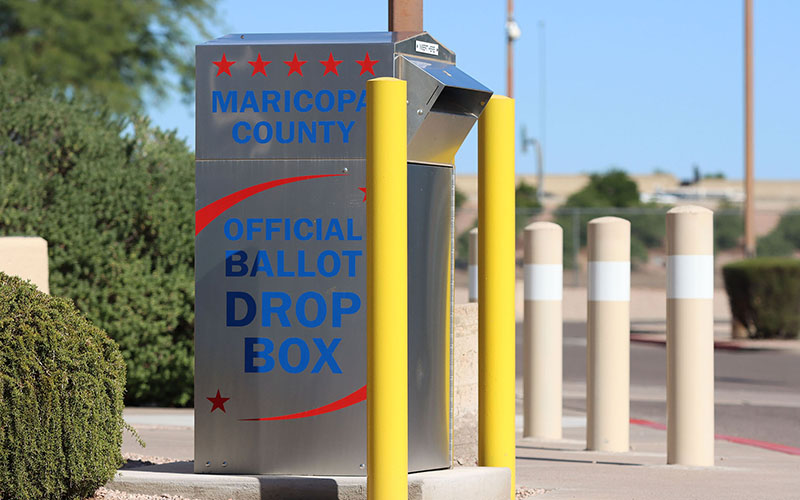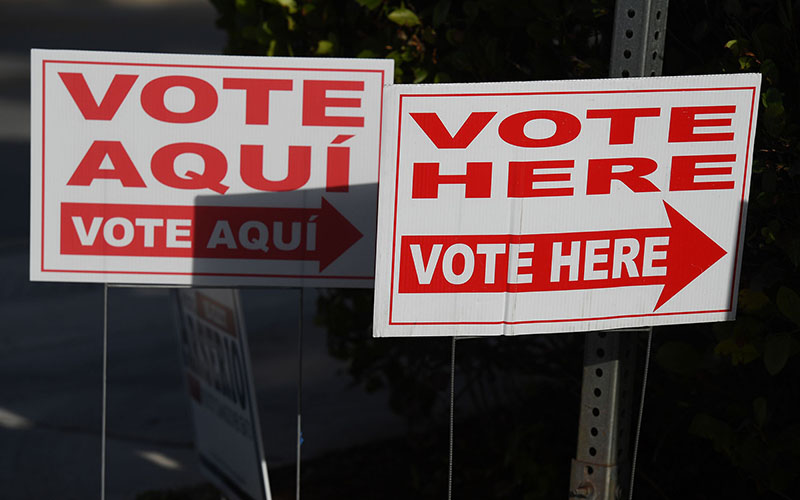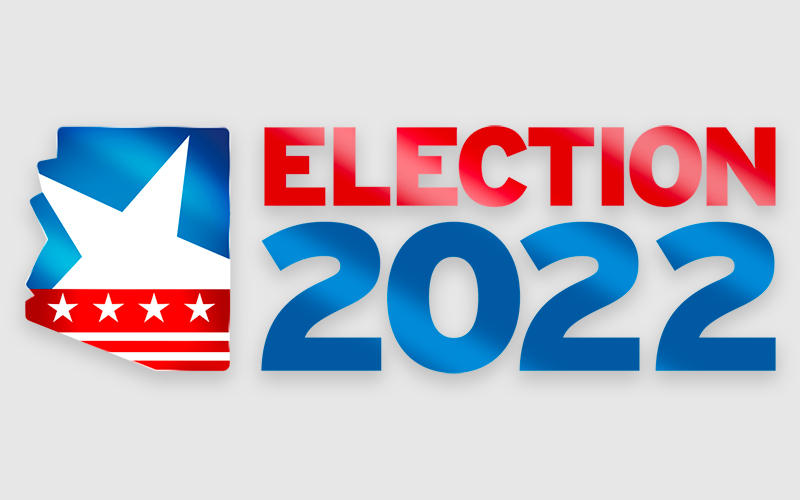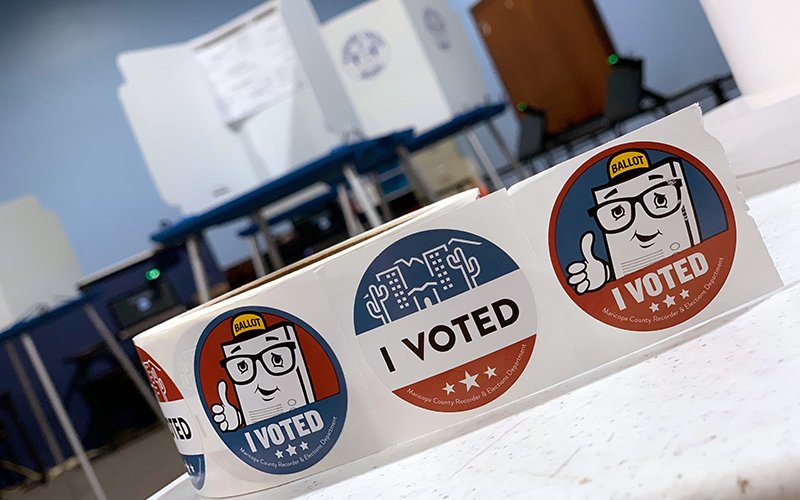WASHINGTON – After failing for two years to get his fellow legislators to pass a voter ID law, Sen. J.D. Mesnard decided to take his case straight to the voters.
The Chandler Republican is the sponsor of Proposition 309, a ballot measure that would require a photo ID for in-person voting and an affidavit for mail-in ballots, a move Mesnard said will “help restore voter confidence in the integrity of our elections.”
“We don’t have that now,” Mesnard said of the proposal. “We don’t have ID required for mail-in ballots. We have the requirements that you sign the affidavit, which is just promising that you are the one who filled it out.”
But critics call it a solution to a problem that doesn’t exist and say that toughening voter ID requirements “does nothing to increase security, but it does make it harder and harder for people to vote,” if not impossible for some voters.
“It doesn’t really do anything to make our elections more secure,” said Ben Scheel, executive director of Opportunity Arizona. “This is just another measure that makes it more difficult to vote in Arizona, and really puts the burden on working folks, folks of color, rural people living in rural areas to cast their ballot and make their voice heard in our democracy.”
Proposition 309, also known as the Arizonans for Voter ID Act, would require voters to show a photo ID when they vote in-person, replacing the current system that lets a voter use two pieces of mail – like bank statements or utility bills – to verify their local address. The Arizona Department of Transportation would have to issue a free nonoperating license to anyone who asked for one to vote.
The measure would also require that people who vote by mail write their birth date, a government-issued ID number or the last four digits of their Social Security number on a “concealed early ballot affidavit” before signing and returning it.
Mesnard wrote that the measure will “help restore voter confidence in the integrity of our elections by ensuring all Arizonans, no matter when, where, or how we vote, present ID when casting a ballot so that all legal votes – but only legal votes – are accepted and counted.”
Other Republican lawmakers who voted to put the issue on the ballot called it a “commonsense improvement” to the state’s voting safeguards, and said it will enact “reasonable policies.”
But critics of the measure like Sundrop Carter, a steering committee member for Prescott Indivisible, called it a “solution in search of a problem.”
“Arizona has been using mail-in voting for what, 30 years or something?” asked Carter, noting that the state has never experienced large-scale voter fraud in that time. “So increasing voter ID does nothing to increase security, but it does make it harder and harder for people to vote.”

One group has taken election security into its own hands, by monitoring ballot drop boxes, leaving some voters to say they feel intimidated. (File photo by Alexia Faith/Cronkite News)
Most of the county recorders in the state agree, signing on to a letter encouraging people to “Please vote ‘NO’ on Proposition 309.” Coconino County Recorder Patty Hansen said she and her colleagues felt they needed to take a stand “because of the lies that are being spread about voter fraud in Arizona.”
Critics said the new requirements could present problems for tribal members, elderly voters who may not have updated IDs and young voters. It is not a partisan issue, said Pima County Recorder Gabriella Cázares-Kelly, who noted that nine of the 15 recorders in the state are Republicans.
“The majority of election of officers within the state are opposed to proposition 309 because they can see that it doesn’t add any value to the election process,” Cázares-Kelly said.
“It imposes new burdens on voters and tabulation delays. And there’s concerns about data privacy, and we don’t know what the effects fully would be,” she said. “But we do know that the system that we have in place is one of the most robust in the country – that we are a gold standard.”
But Aimee Yentes, vice president of the Arizona Free Enterprise Club, pointed to what she called the “utility loophole” in the current law, which results in a “disparate requirement of ID for when you vote in person versus when you vote by mail.” The latter currently requires just a signature, compared to the multiple documents that might be required now.
Proposition 309 has “been so broadly adopted by the private sector as a way to protect people’s information, confirm identity, and keep consumers safe,” said Yentes, who also serves as Gilbert vice mayor.
In addition to the Arizona Free Enterprise Club, the measure’s backers include the Arizona Republican Party, the Goldwater Institute, the Election Transparency Initiative, America First Policy Institute and Arizonans for Voter ID.
Mesnard said he thinks the measure will pass, although the margin of victory “may be tighter” because of what he called “distortions” from opponents.
“Whether or not it will pass will partly depend on whether or not the proponents, myself and others can overcome that ridiculous characterization, that this will somehow suppress votes, especially if it’s designed to suppress voters,” Mesnard said.
But Pinny Sheoran, president of the League of Women Voters of Arizona, said there’s nothing ridiculous about the criticisms of the measure, which she called “a lot of noise created to undermine the confidence in voting and specifically, making it harder to vote.”
“This is not about voter eligibility,” Sheoran said. “This is about should you receive the ballot. And in order for you to be able to receive the ballot, there is an identification process that is already in place that’s robust that we support.”
Carter said her take may be cynical, but she thinks the measure is “being promoted by people who have created the distrust” in elections in the first place and “are now trying to give a solution to the problem they created.”
“That is really just about limiting the vote to only the people they know support them,” Carter said.



